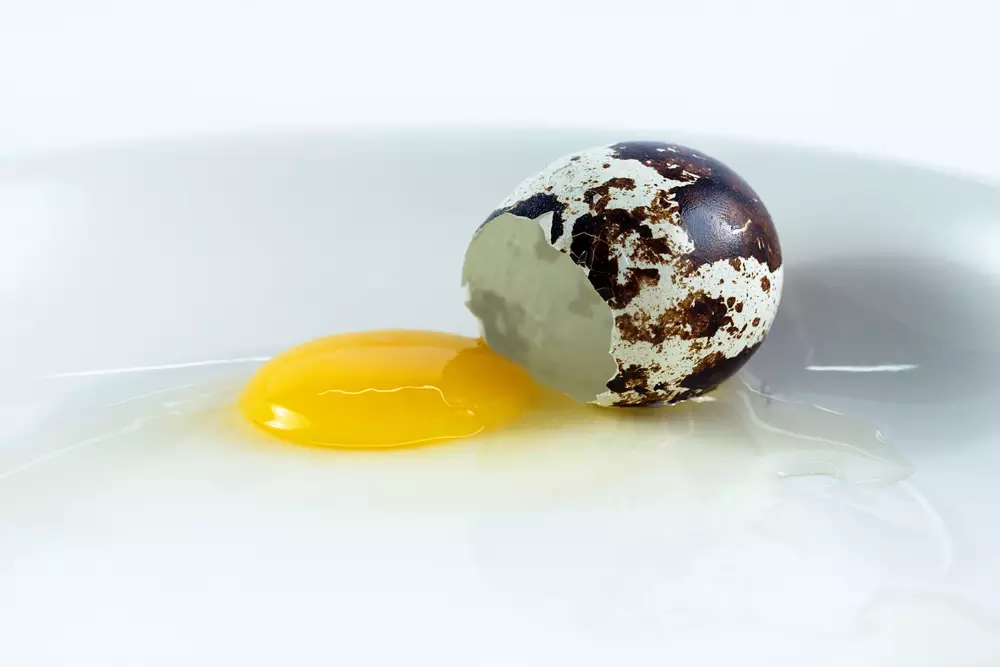Quail eggs are a fascinating part of nature’s bounty, a petite version of their chicken counterpart and often touted as a gourmet ingredient in various cuisines. Their distinctive speckled shells hold a myriad of nutrients, making them an attractive choice for culinary enthusiasts and health-conscious individuals alike. With a higher yolk-to-white ratio than chicken eggs, they have a rich, flavorful taste that is unique to their kind.
However, the question that surfaces often among consumers and enthusiasts is whether these eggs carry Salmonella, a common bacterium that causes food poisoning. It’s essential to note that quail eggs, like all types of eggs, can potentially carry Salmonella. But factors such as the bird’s health, its environment, and how the eggs are handled and cooked can influence this risk.
Salmonella is a potential risk in all kinds of poultry eggs, not just the eggs of chickens. The risk might be more significant in quail eggs due to their increased popularity, smaller size, and specific farming practices.
Quail Eggs vs Chicken Eggs
Comparing Nutrient Profile
Quail eggs are packed with essential nutrients. Despite their small size, these eggs offer a potent dose of proteins, vitamin B12, iron, and selenium. Comparatively, they contain higher amounts of these nutrients than chicken eggs. They are also rich in choline, a nutrient crucial for brain health.
Size and Taste Differences
In terms of size, quail eggs are smaller than chicken eggs, usually about one-third the size. The taste of quail eggs is richer, due to their higher yolk-to-white ratio, often described as more gamey or earthy.
Variations in Shell Colors and Patterns
The shell of a quail egg is quite distinctive. Unlike the uniform white or brown of chicken eggs, quail eggshells are often speckled with an array of patterns, lending to their aesthetic appeal.

Salmonella: A Brief Overview
What is Salmonella?
Salmonella is a bacterium that can cause a type of food poisoning called salmonellosis. It is one of the most common causes of gastroenteritis, affecting millions of people worldwide each year.
Common sources of Salmonella
Salmonella is usually found in foods of animal origin, but it can also be present in fruits and vegetables. Poultry, including eggs, is one of the most common sources.
Symptoms of Salmonella Infection
Symptoms typically include diarrhea, fever, and abdominal cramps, and they usually appear 12 to 72 hours after eating contaminated food. Most people recover without treatment within a week.
Can Quail Eggs Have Salmonella?
General Risks of Salmonella in Eggs
Salmonella can be present in all types of eggs, including chicken, duck, and quail eggs. It can either be found on the shell from fecal contamination or in the egg if the mother hen was infected.
Specific Risks Associated with Quail Eggs
Quail eggs might carry a higher risk of Salmonella compared to other eggs due to various factors, including farming and handling practices, the health of the birds, and their susceptibility to bacterial infections. However, scientific research on this topic is limited.
Studies on Salmonella in Quail Eggs
One study conducted on Japanese quail found that quail can carry Salmonella and pass it to their eggs, though the prevalence was low. Further research is needed to understand the full risk posed by quail eggs.
Reducing the Risk of Salmonella in Quail Eggs
Proper Handling and Storage of Quail Eggs
To reduce the risk of Salmonella, quail eggs should be handled properly. This includes storing them in the refrigerator, washing hands before and after handling, and cleaning any surfaces that come into contact with the eggs.
Cooking Quail Eggs Properly
Cooking quail eggs thoroughly can help eliminate any potential Salmonella. This includes fully cooking the yolk and white or using pasteurized quail eggs in recipes that call for raw or lightly cooked eggs.
Safe Sourcing of Quail Eggs
Buy quail eggs from reputable sources. Farms that follow good hygienic practices are less likely to have eggs with Salmonella.
Myth vs Fact: Quail Eggs and Salmonella
Common Misconceptions about Quail Eggs and Salmonella
There are misconceptions that quail eggs can’t have Salmonella because of their small size or differences in quail biology. However, these are not backed by scientific evidence.
Validating Facts with Scientific Studies
Scientific research shows that quail eggs can carry Salmonella, though more research is needed to understand the prevalence and risk factors.
Frequently Asked Questions
Can you eat raw quail eggs?
While raw quail eggs are used in certain dishes, it’s safer to cook them to reduce the risk of Salmonella or other foodborne illnesses.
Are quail eggs healthier than chicken eggs?
Quail eggs are more nutrient-dense than chicken eggs. However, they are also smaller, so you would need to eat more quail eggs to get the same amount of nutrients.
Do quail eggs taste different from chicken eggs?
Quail eggs have a rich, gamey flavor due to their higher yolk-to-white ratio. They can be used in a variety of dishes, from appetizers to desserts.
Conclusion
The risk of Salmonella in quail eggs, as with any poultry egg, is a valid concern. But with proper handling, storage, and cooking, this risk can be significantly reduced. Quail eggs provide a nutrient-dense, flavorful alternative to chicken eggs, making them a valuable addition to a balanced diet.
Yet, it’s vital to respect food safety guidelines when handling and consuming these eggs, especially if you belong to a vulnerable group, such as the elderly, children, pregnant women, or people with compromised immune systems.
In the end, the decision to consume quail eggs is a personal one, heavily dependent on one’s dietary preferences and tolerance for risk. Just remember that being informed and practicing proper food safety can go a long way in ensuring a safe and delicious culinary experience.